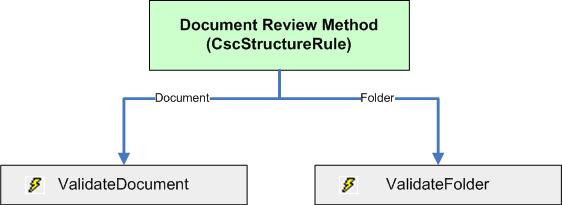Document Review methods
Document Review methods are added and created for Project Settings. From Project menu select Project Settings to open the window. During the creation of the methods, sample script code is provided that can be copied directly into the project script.
The Document Review events occur only during the document review process. They are executed for every change in the batch. The events of the Document Review methods are part of the project script sheet. For a Document Review method depending on the method type that is defined during creation of the Document Review method the following events occur:
